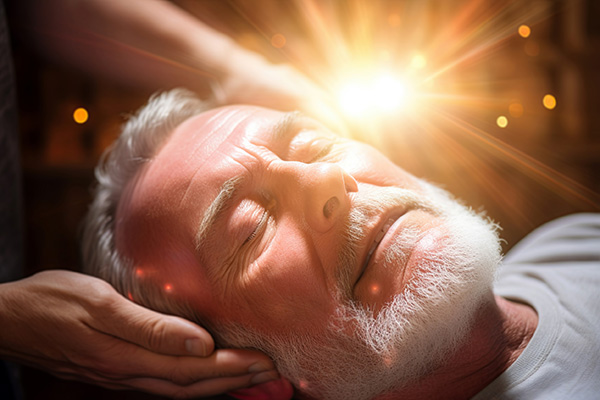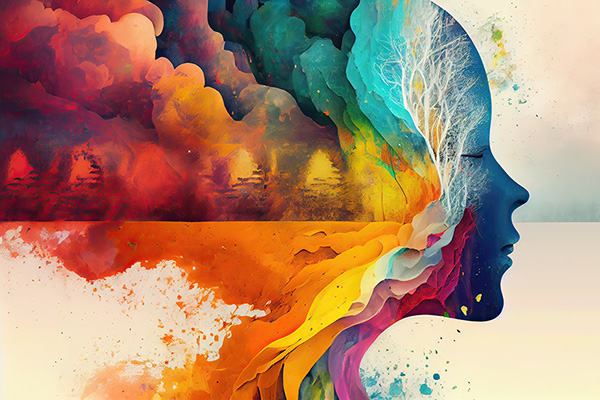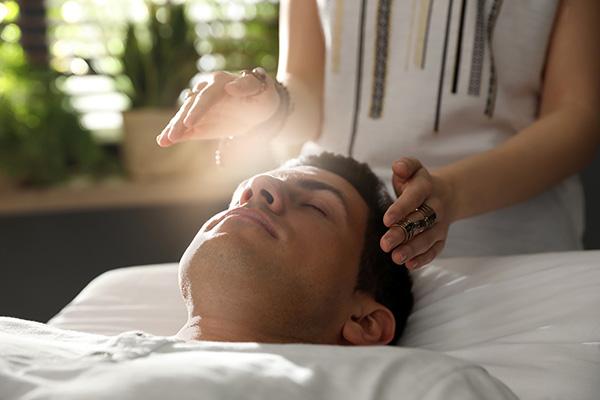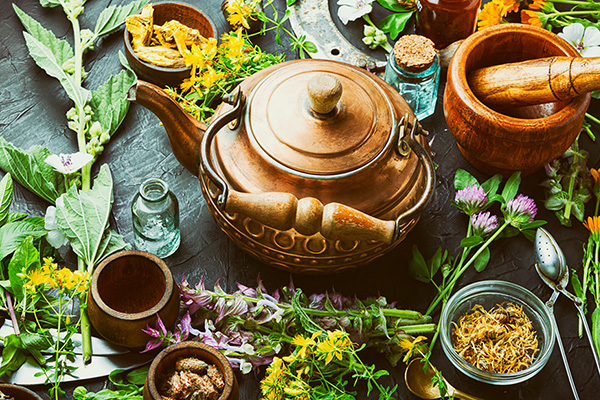medical intuitive
The Miracle Gift Of Spiritual Healing
 I discovered that I had the spiritual gift of healing many years ago when I went to visit my father in the hospital. He was in great pain and something told me to gently touch the knee he had just had surgery on. It was not my intention to accomplish anything, just to comfort him. But then I saw his expression change from agonizing pain to instant relief. That to me was a miracle!
I discovered that I had the spiritual gift of healing many years ago when I went to visit my father in the hospital. He was in great pain and something told me to gently touch the knee he had just had surgery on. It was not my intention to accomplish anything, just to comfort him. But then I saw his expression change from agonizing pain to instant relief. That to me was a miracle!
The next great healing miracle happened when one of my twin daughters was ice skating when she was about 8 years old. I was watching the children enjoy the beautiful winter day when my daughter suddenly slipped and fell. I will never forget her painful scream. I knew immediately that this was really bad! By the time I got to her, others were helping her, but she would not stop screaming. Hearing her in such pain shot through my heart like a bullet.
When I got to her, I immediately saw the bone protruding through her skin. I put my hands over the fracture on her forearm and said, “It’s okay, it’s okay. Immediately she stopped crying and said, “Mommy, it doesn’t hurt anymore. I was stunned and so was everyone else.
I held her arm all the way to the hospital, and when we got there, they made me remove my hands. Again I had to listen to my daughter scream in pain and I felt helpless.
After they immobilized her arm, they let me see her. I touched the cast on her arm and immediately felt that it was not properly applied. Of course, they refused to listen to me at first, but I kept insisting that something was wrong. Finally, they agreed to take a second x-ray, which showed that my daughter’s arm was indeed not in the correct position. So she had to have it done again. One of the nurses asked me how I knew. I never answered.
A Spiritual Calling To Serve The Animals
 My psychic awakening began early, at the age of five. My first extrasensory experiences involved listening to animals and intuitively understanding their needs and concerns. Once I realized that I could communicate with the animals in this way, I began to listen more often to how I could help and support them.
My psychic awakening began early, at the age of five. My first extrasensory experiences involved listening to animals and intuitively understanding their needs and concerns. Once I realized that I could communicate with the animals in this way, I began to listen more often to how I could help and support them.
One day, I was playing outside when I sensed an animal calling to me for help. When I turned around, I saw a beagle at a neighbor’s house, shaking his head violently and whimpering. I could feel its distress.
As I approached, I immediately saw the cause of his discomfort. His ears were covered with parasites to the point that he was bleeding from repeated scratching.
Intuitively I instantly knew I had find an ointment, and with the simplicity of a child’s solution, I applied petroleum jelly to his ears. To my surprise and joy, it worked! Relieved, the beagle expressed immense gratitude, and tending to his ears became my daily mission.
My parents later adopted a retired German shepherd from the military. Because of his special training and many years of service, he was highly alert to things around him. His name was Argo, and I was told that he only understood formal commands, so it would be difficult for him to adjust to living as an ordinary “civilian” with our family.
Little did the adults know that I had my own way of talking to the animals. Soon I found myself sitting with Argo for hours, secretly communicating with him. He told me many amazing stories about his adventures as a military service dog. We became inseparable.
Exploring The Benefits Of Reiki Healing
 Reiki healing offers a variety of potential benefits for both your physical and mental well-being. Reiki teaches that when our life force is high, we feel happy, radiant and vital, and when it is low, we feel sick, drained and stressed.
Reiki healing offers a variety of potential benefits for both your physical and mental well-being. Reiki teaches that when our life force is high, we feel happy, radiant and vital, and when it is low, we feel sick, drained and stressed.
Reiki is a form of energy healing in which practitioners use their hands to channel life force energy to the recipient. This universal energy or life force flows through all living things and is called ki in Japanese. The concept is similar to qi (or chi) in Chinese culture and prana in Indian culture.
A qualified Reiki healer is trained to channel healing energy to balance the flow of your life force energy and return you to a state of harmony and vitality.
Reiki has grown in popularity in recent years. Once viewed with skepticism by mainstream medicine, there’s a growing openness to complementary therapies, and Reiki is seen as a gentle and relaxing practice.
In today’s fast-paced world, stress is a major concern. Reiki’s reputation for promoting relaxation and reducing stress makes it attractive to many. Celebrities like Angelina Jolie, Nicole Kidman, Sandra Bullock and Gwyneth Paltrow and any mothers have spoken openly about their use of Reiki, giving it a touch of glamour and social validation.
Learning To Trust Your Intuition
 How often have you said, “If only I had gone with my gut?” This is a question that many of us have asked ourselves at one time or another about a matter, or even about the sincerity of a person who turned out to be untrustworthy, and we gave them the benefit of the doubt, only to feel heartbroken when they betrayed us.
How often have you said, “If only I had gone with my gut?” This is a question that many of us have asked ourselves at one time or another about a matter, or even about the sincerity of a person who turned out to be untrustworthy, and we gave them the benefit of the doubt, only to feel heartbroken when they betrayed us.
We don’t have to throw reason out the window when we tune into our inner wisdom called intuition. But while it’s good to have as many facts and information available as possible before making a choice or decision, there are certain times when we don’t have the luxury of first weighing all the pros and cons. Tapping into our intuition is a powerful tool for making difficult decisions and important life choices by spontaneously ‘knowing’ or ‘sensing’ what’s best for us in our work, business, relationship, or lifestyle.
For example, as a manager you may be hiring someone for a job who ticks all the boxes in terms of qualifications and experience, but that little inner voice is screaming, “Don’t hire this person!” If you then do hire them, you may find out later that they have deep-seated issues that will upset the rest of the staff and antagonize your customers.
So many clients have told me over the years that they had an overwhelming feeling that they were making a huge mistake, but they decided to marry someone because they wanted to make everyone else happy, or because so much effort and expense had gone into the wedding arrangements. Just the other day a client told me that he should have listened to his inner guidance, not to mention the guidance he received in a psychic reading that warned him that he would end up separating within a few months of the wedding. If only he had trusted his intuition.
The Modern Practice Of Spiritual Healing
 In a world driven by science and technology, the value of our spiritual health is rarely recognized or appreciated these days, yet it is an essential aspect of our holistic health and well-being.
In a world driven by science and technology, the value of our spiritual health is rarely recognized or appreciated these days, yet it is an essential aspect of our holistic health and well-being.
The truth is that spiritual healing has been practiced since the beginning of time to promote physical, emotional, mental and spiritual well-being. Our ancestors were much wiser in this regard. They had a holistic view of health and wellness that not only focused on the physical and mental, but also honored the spiritual or metaphysical aspects of our existence.
In ancient Egypt, for example, illness was treated as a battle between good and evil, and magical remedies were used in addition to herbal medicines. In ancient Greece, holism underpinned everything, and the soul, mind, and body were considered one.
In Traditional Chinese Medicine, a holistic system practiced for at least 23 centuries, healing is achieved by balancing the yin-yang life force energies that permeate everything in the universe. In the indigenous healing traditions of Native America, holistic health is represented by the four quadrants of the ‘medicine wheel’ or ‘sacred circle,’ namely the physical, emotional, mental, and spiritual states of being.
In Christianity, spiritual healing is documented with many references to the healing power of faith and prayer. The Bible also refers to the spiritual gift of healing, and there are several accounts of Jesus performing miraculous healings. In Hinduism, Ayurveda is a five-thousand-year-old Vedic system of medicine that seeks to restore the balance between the body, mind, and spirit.
The Basics Of Reiki
 Reiki is popular concept in modern spirituality, metaphysics and energy healing. It is therefore good for anyone interested in these fields to have a basic understanding of this technique to engage in discussions with likeminded people in a meaningful way.
Reiki is popular concept in modern spirituality, metaphysics and energy healing. It is therefore good for anyone interested in these fields to have a basic understanding of this technique to engage in discussions with likeminded people in a meaningful way.
The term reiki is a combination of two Japanese words. Rei means ‘divine wisdom’ or ‘divine power,’ and ki means ‘life force energy’ or ‘vital human energy.’ Reiki is therefore a ‘divinely empowered life force.’
Reiki, or rather the system of Reiki, was developed in Japan a century ago by a Buddhist monk known as Mikao Usui. He was a renowned spiritual man who dedicated his life to being of service to others. While seeking spiritual awakening on Mount Kurama, north of the Japanese city of Kyoto, he was divinely inspired with the gift of Reiki. It was introduced to the United States in the late 1930s by Hawayo Hiromi Takata, a Japanese-American woman who received training in Reiki in Tokyo and became a master practitioner.
Although it is more commonly known only as a form of energy healing, true Reiki is in fact a comprehensive spiritual practice and a conscious lifestyle. Yes, it involves the healing of the mind and body, but it also proposes living in total peace with oneself, and being aware of your own unique purpose and spiritual light within. The system of Reiki seeks to remove the layers of fear, worry and attachments that conceal our innate brightness of being.
Developing Your Herbal Intuition
 Herbal medicine is becoming increasingly popular, and many people are increasingly turning to herbalism as a healthcare supplement, or even a substitute to conventional pharmaceutical medicine. Plants, flowers, and herbs all have unique energetic qualities that make them suitable for various purposes. They are alive and respond to their environment and how they are treated in the same way humans do.
Herbal medicine is becoming increasingly popular, and many people are increasingly turning to herbalism as a healthcare supplement, or even a substitute to conventional pharmaceutical medicine. Plants, flowers, and herbs all have unique energetic qualities that make them suitable for various purposes. They are alive and respond to their environment and how they are treated in the same way humans do.
When we think of herbs, we tend to narrowly categorize them according to the medical conditions they can be used for, or what aspect of our health and wellness they can improve. However, like people, herbs are much more complex and multi-faceted, and have many uses and applications, alone or in combination with other herbs.
To obtain the most benefit from any herb, we need to take the time and have patience to truly get to know the herb. When you meet someone for the first time at a social event, would you diminish the other person’s true worth by instantly deciding they have only one useful trait or redeeming quality, and leave it at that? Taking the time to get acquainted with a particular herb is much like getting to know someone in an intimate friendship.
Selecting herbs to work with or draw upon for healing is a highly intuitive process. The appearance, aroma, taste, texture, and energy vibration of the ideal herb for a specific purpose must speak to us mind, body, and soul. They convey a distinct energy signature and frequency of healing that the intuitively aware user will innately know is best to use at that time.